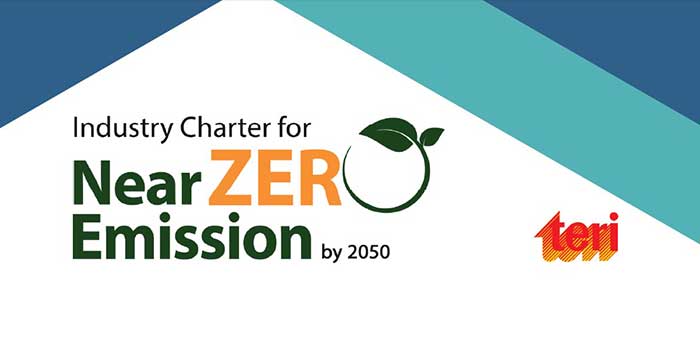Focus Areas
Hear from Founding Signatories
Under the charter, Hindalco Industries is looking to work on policy intervention in the areas of India's energy mix, renewable energy, and open access to electricity. Hindalco believes that India as a country needs to have a clear roadmap on low/zero carbon energy mix. In renewable energy, while all states have their Renewable Power (Solar/Wind) Policy, there are multiple implementation challenges in securing land and connectivity approval for projects meant for captive consumption. In electricity access too, there is a need to reduce transmission/distribution charges and losses to make bulk power transfer of renewable energy viable and affordable. Hindalco also feels cross subsidy should be reduced and abolished.
In addition, it is also interested in working zero-carbon fuel in the form of production, storage, and power generation from hydrogen, and with low-carbon fuel in the form of Liquified Natural Gas (LNG) for power generation and heating applications.
It is also interested in carbon capture, utilisation, and storage (CCUS), and in taking up affordable and reliable energy storage solutions such as pumped hydro, battery storage etc.
Tata Consulting Engineers Ltd. has made a commitment towards “Engineering a better and sustainable tomorrow”. Under the Industry Charter, it proposes to jointly pursue research and pilot studies in the areas of -
- Hydrogen Economy, i.e. Study and research on Hydrogen based economy with emphasis on green hydrogen production using renewable resources of solar and wind power, biomass, coal bed methane, bio-methane. Use of hydrogen blended with natural gas for energy and heat generation, in Direct Reduction furnace in place of natural gas, in blast furnace for iron making in reduce use of coal, and use of hydrogen fuel cells for energy generation.
- Electrification of Everything Ecosystem, or EEE, which includes use of biomass for electricity generation, Microgrids for various campuses like schools, colleges, large housing societies, remote villages and integration of the renewables to national/state grid, Charging infrastructure for BEV and FCEV and integration with renewable power generation, and Manufacture of battery for electric vehicles in India using recycled battery products.
Apart from the above, TCE is also interested in areas of Bio-based technologies for sustainable generation of chemicals for industrial application and food processing industries, Solid waste collection, handling, management, recycling and waste to energy conversion, Improvement of water distribution networks for reduction of losses using sensors, GIS mapping and host of digital technologies.
Siemens Energy India supports enabling policies that provide a reliable long-term investment perspective and create a global level playing field to accelerate a large-scale deployment of low-carbon technologies:
- Redesign electricity markets to ensure sufficient investments into a sustainable, secure, and efficient energy system
- Make conventional fossil fuel-based power generation more efficient by modernizing them and leveraging digitalization to address key areas of optimization.
- Increase the share of renewable energy and accelerate the switch of the remaining conventional electricity generation to low-carbon fuels
- Use energy as efficiently as possible – not wasting energy is a cost-effective pillar of a low-carbon economy as it reduces the need for capital intensive investments in the electricity sector
- Accelerate the uptake of highly flexible technologies to integrate renewable energies and ensure system stability
- Accelerate the decarbonization of other sectors with sector integration, including Power-to-X applications. Combination of electrification and green synthetic fuel (synfuel) applications especially for the industry and transport sector is required for the decarbonisation of the economy.
Furthermore, these levers will be amplified through digitalization as a new driver towards technological progress and development of new business models.
Under the Charter, Dalmia Cement (Bharat) Ltd is looking to work on renewable energy, including building conducive policy atmosphere for captive renewable power generation; use of industrial wastes for decarbonised circular economy, use of green hydrogen, and electric mobility, Heat electrification, carbon capture and utilisation.
It is also interested in use of bamboo as fuel and conducive policy environment to grow it in waste lands, biofuels, and solar drying/solar calcination, etc
For more information on ‘Industry Charter for Near Zero Emissions Ambition by 2050’,
please visit the portal: https://teriindustrycharter.in/
Industry Charter for Near Zero Emission by 2020
Click here to read the Charter.

